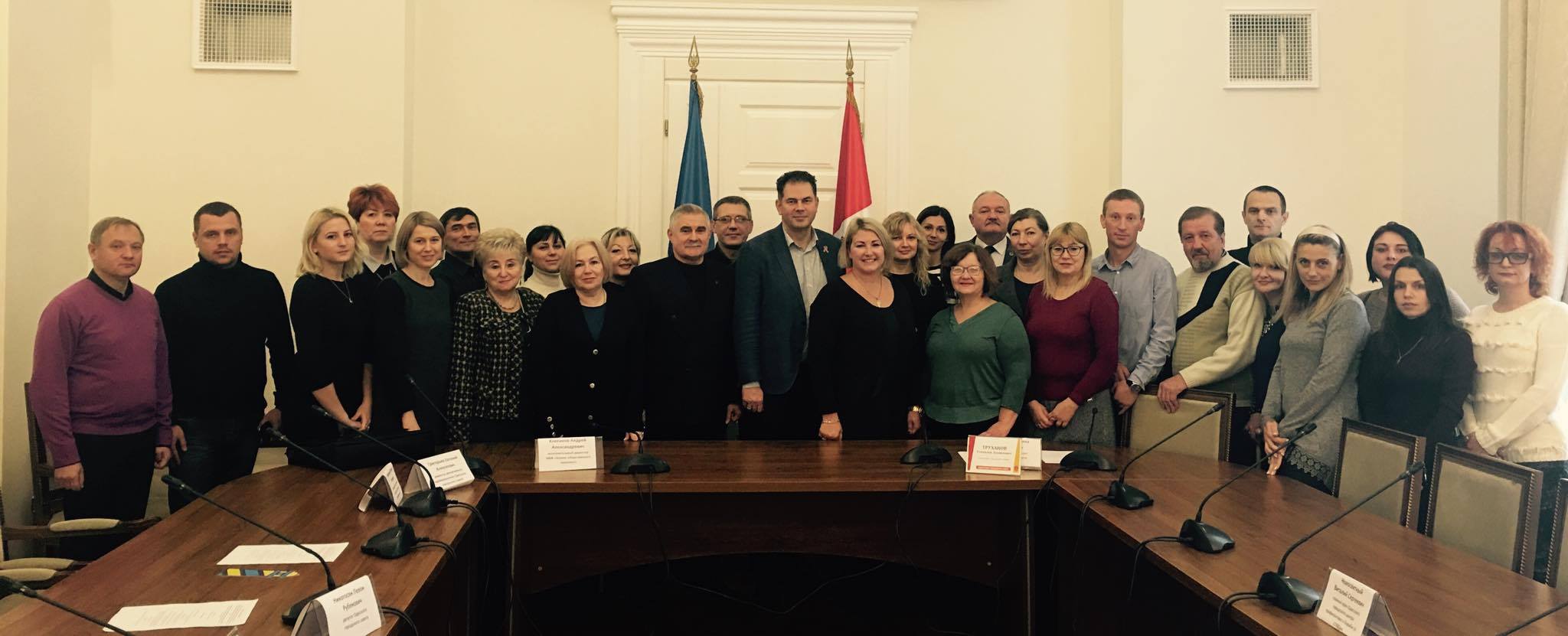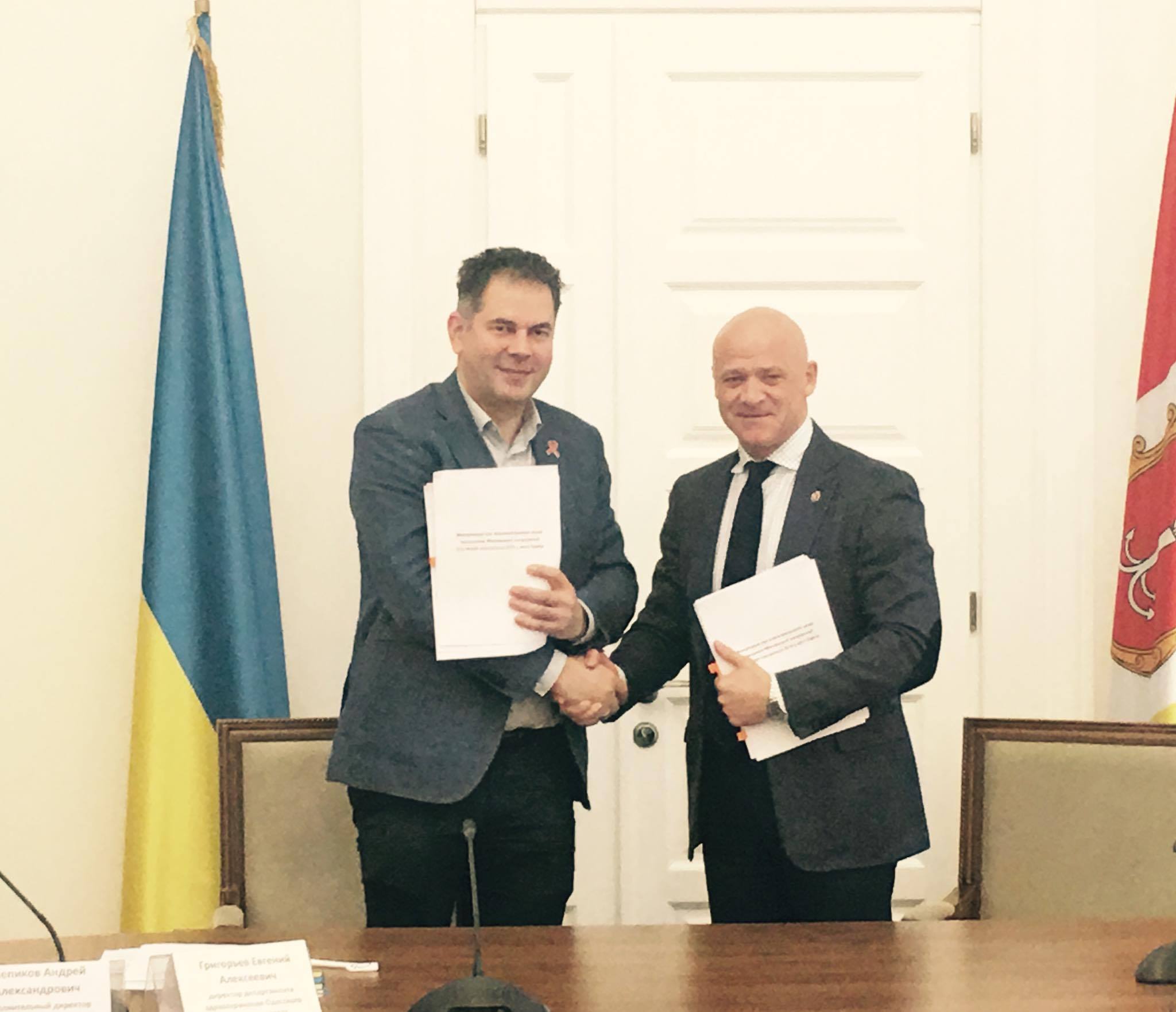
On 4 December 2017, an official ceremony was held to sign a Memorandum of Understanding and Cooperation between the Executive Committee of the Odesa City Council and the International Charitable Foundation “Alliance for Public Health” (hereinafter – Alliance). This is an important step to deepen the cooperation within implementation of the relevant state programs to fight HIV/AIDS, tuberculosis and viral hepatitis. The fact that the Memorandum has been signed personally my the Mayor of Odesa, Gennadiy Trukhanov, once more proves his strong commitment to countering socially significant diseases and positive trends in further coordination of the efforts of government authorities and civil society in response to the epidemics.
Alliance as an official co-implemented of the National Targeted Social Program to Counter HIV/AIDS in 2014–2018, in particular within the program “Investing for Impact against Tuberculosis and HIV” supported by the Global Fund to Fight AIDS, Tuberculosis and Malaria, making a significant contribution to curbing the epidemics in Odesa. In particular, in 2017 the amount of funding allocated to implement comprehensive interventions to counter the spread of the above-mentioned diseases is over UAH 28.8 million.
Every tenth Ukrainian citizen with HIV lives in Odesa. Odesa region and the city of Odesa have the highest HIV rate: 861.8 per 100 thousand people, which is over 2.5 times higher than the average national level (323.7 per 100 thousand people). However, thanks to the well-coordinated efforts of five civil society organizations, working in the city, HIV prevention services cover about 21 thousand people from among the key populations, with a clear trend towards reduction in the risky behaviors among the vulnerable groups, which contributes to lowering the risks of further HIV transmission in the general population.
Apart from the activities in the area of HIV/AIDS, Alliance also helps the city to counter the epidemics of tuberculosis and viral hepatitis. Medical and social support is provided to 500 patients with multidrug-resistant tuberculosis. Besides, Alliance helped the city to launch hepatitis C treatment with new-generation direct-acting antivirals Sovaldi and Harvoni for 24 patients.
Odesa became the only city in Ukraine to implement the program “Fast-track TB/HIV responses for key populations in EECA cities” (supported by the Global Fund) aimed at developing the models of sustainable city responses to the epidemics of HIV and TB in key populations to achieve 90-90-90 targets, which will help to reduce HIV and TB mortality rates and increase the municipal funding of the programs for key populations.
Besides, on this day another important document was signed – the Memorandum of Understanding on holding the City Health International Conference 2018 in Odesa. The City Health International Conference first held in 2012 is focused on the health and well-being of people and covers the topics of alcohol and drug use, healthy nutrition, safe sexual behavior and prevention of violence as well as other factors influencing public health in cities. Odesa will become the first city in the Eastern Europe, which will host this high-profile forum on 13-14 September 2018. Participation of Ukraine in this event opens new opportunities to resolve the public health issues at the city level and participation of the mayors from a number of European cities will become a powerful instrument to share the best practices and strengthen the role of local authorities in enhancing the health of people in the city.
At the signing ceremony, Alliance Executive Director, Andriy Klepikov said: “Alliance makes an essential contribution to the response to the epidemics of HIV, tuberculosis and hepatitis in the region – over 28 million hryvnias in 2017. Such funding allowed stabilizing the situation with HIV in Odesa. We are convinced that leadership of the Odesa Mayor, Gennadiy Trukhanov, will allow increasing allocations of funding from the city budget, launching innovations to prevent the spread of HIV, timely identify the existing HIV infections, and increasing the number of people who have access to vital therapy, such as antiretroviral treatment, opioid substitution treatment and hepatitis treatment in Odesa.”

